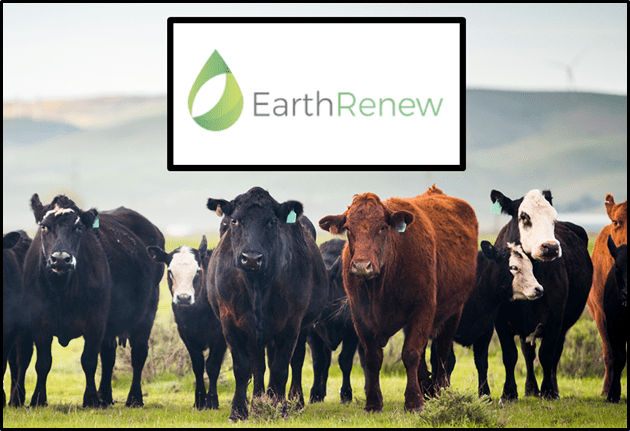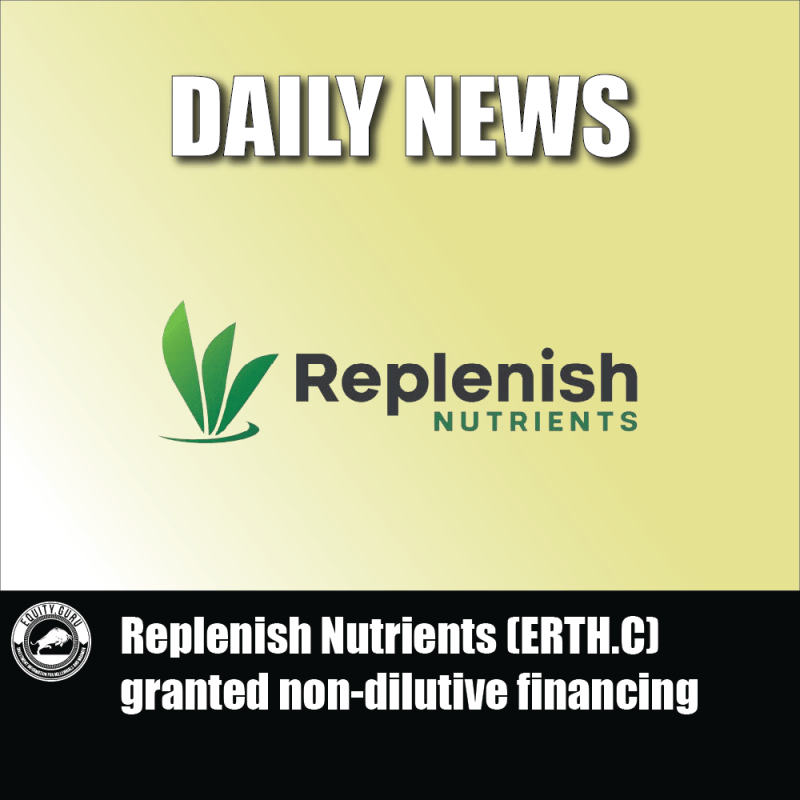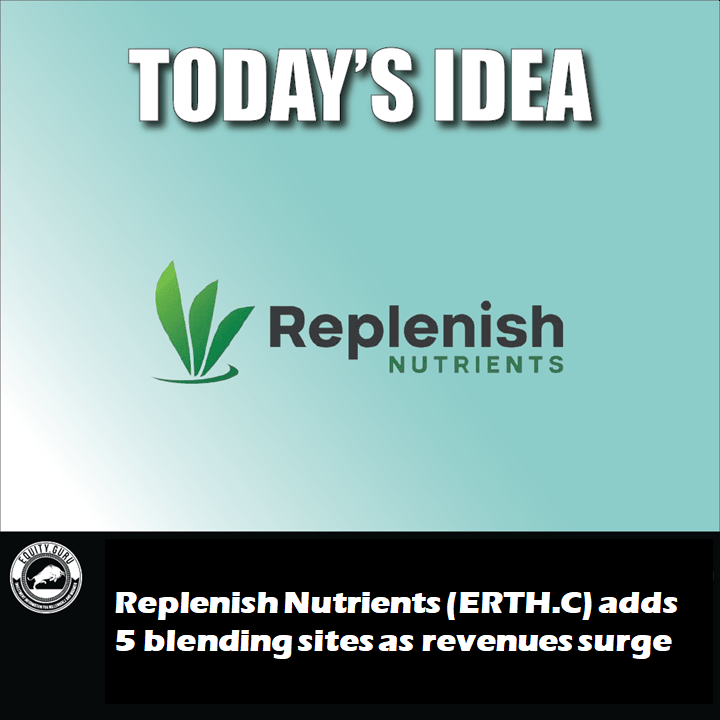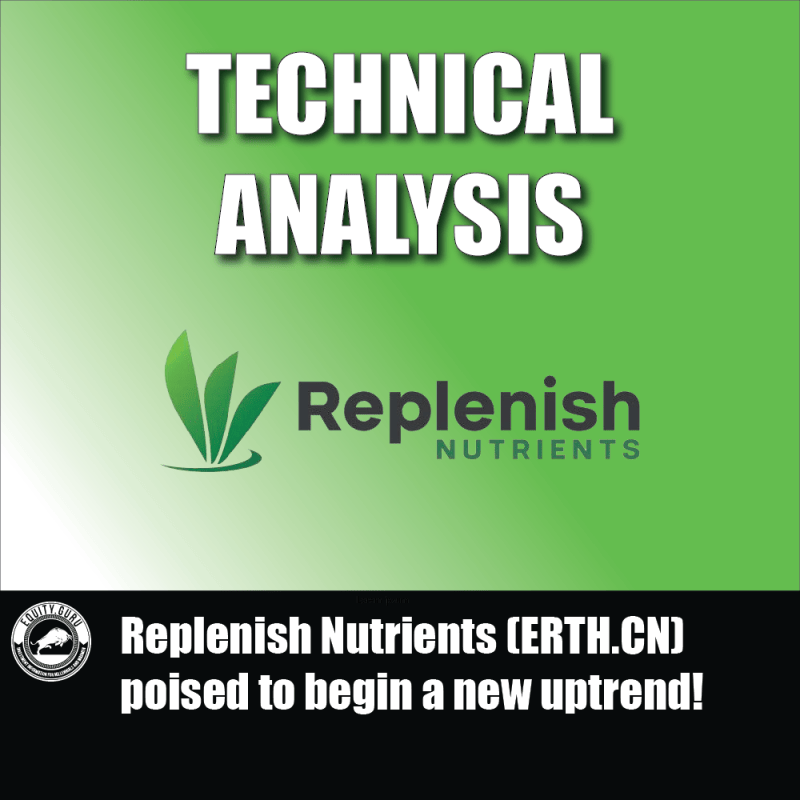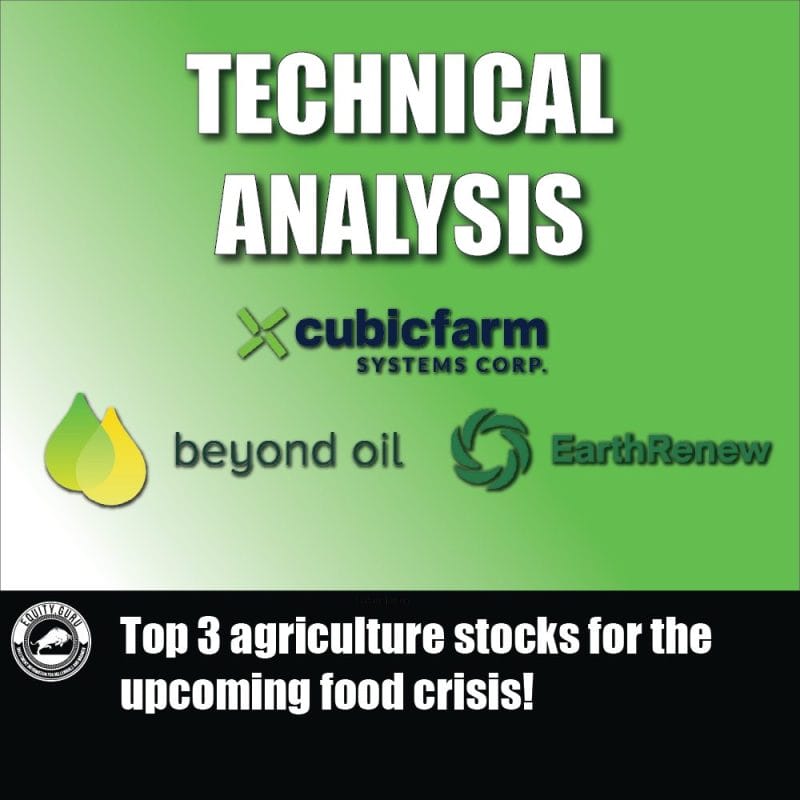On December 2, 2020 EarthRenew (ERTH.C) announced that it has started a long-term soil health demonstration trial with an agronomist at a farming operation in west central Saskatchewan in the “dark brown soil zone”.
“An agronomist acts as the go-between for farmers and crop researchers,” states Career Explorer, “the role is best summed up as a ‘crop doctor.’
Suggestions are made to the farmer regarding new scientific developments in order to help the growing operation.”
EarthRenew is a good example of “new science” applied to “growing operations”.
ERTH transforms livestock waste into a high-performance organic fertilizer.
Right now, the company is focussed on the North American market.
The equipment is modular, so ERTH has the potential to scale into international markets.
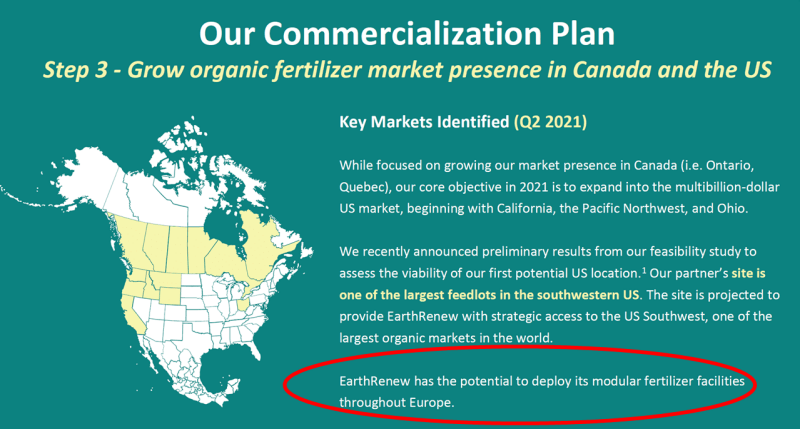
“Soils in the dark brown zone are part of the cooler, wetter mixed grassland ecoregion and have a higher amount of Soil Organic Matter content, darker soil color and thicker soil development,” states ERTH.
“The purpose of the field trial is to demonstrate the combined effects of EarthRenew’s GrowER and a microbial in a post-harvest application,” continued ERTH.
EarthRenew requires production scale field trials to understand product market-fit, including product handleability and to validate historical data on GrowER’s ability to increase overall soil health.
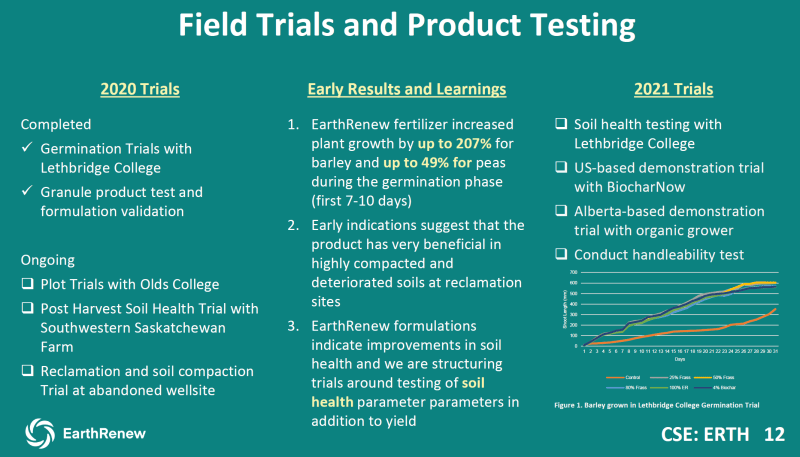
Last week, ERTH announced that it sold 25 tonnes of its organic fertilizer product to NorthWind Land Resources, a land reclamation company.
The fertilizer is being used by NorthWind at an oil wellsite reclamation project near Red Deer, Alberta.
Applying EarthRenew’s GrowER fertilizer to the soil subsurface at the site is expected to enhance natural microbial activity, improve soil health and facilitate vegetation growth.
Concurrent with the first commercialisation of its product, ERTH is applying scientific rigor to its technology.
“1.6 tonnes per acre of GrowER product was applied on a 20-acre demonstration plot by a third-party custom spreading operator,” reported ERTH, “An adjacent control comparison plot was treated with microbial treatment but no EarthRenew treatment”
ERTH is going to measure soil health response by comparing the results of a Haney soil test that was completed after harvest in 2020 to the results of a Haney soil test that will be completed after the 2021 growing season.
The Haney soil test uses unique soil extracts in the lab to determine what quantity of soil nutrients are available to soil microbes.
ERTH’s goal is to show a measurable improvement in a producer’s profit-per-acre as compared to the control plot, along with a marked difference in soil water holding capacity.
“We are very excited to start our next stages of demonstration trials,” stated EarthRenew’s CEO, Keith Driver, “Building on the results from our work in the 2020 growing season, we intend to expand the scope of our trials and capitalize on the benefits that our products can generate.”
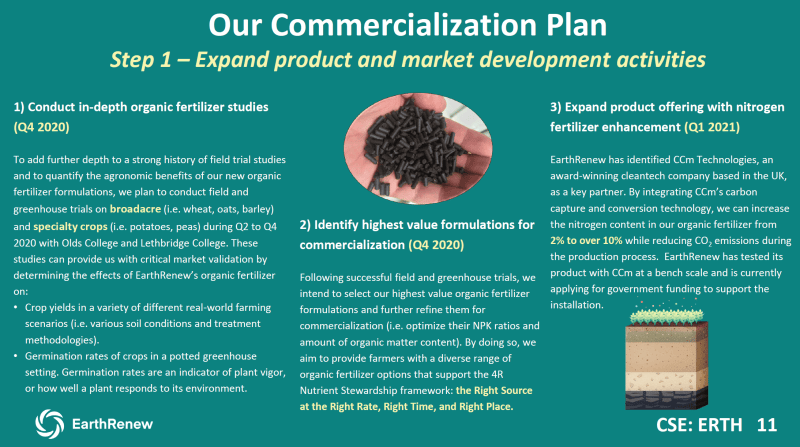
One December 1, 2020 EarthRenew announced that it has renewed the lease of 2.92 acres of the Cattleland Feedyards site located in Wheatland County, Alberta, East of Calgary, for a 9-year term, with eight 5-year extension options.
The feedstock agreement included in the lease agreement secures a minimum of 40,000 tonnes of wet manure feedstock annually, which ERTH estimates can be used to generate up to 18,000 tonnes of EarthRenew organic fertilizer
Cattleland Feedyards expects savings of up to $500,000 annually by taking advantage of the unique on-site waste management solution provided by EarthRenew.
“The recommissioning of the EarthRenew facility will comprise the majority of our manure management solution,” stated Cattleland Feedyards’ CEO, Keith Gregory, “By taking our waste, EarthRenew’s operation will help us save close to half a million dollars a year in hauling and spreading costs.”
In the video below, Keith Gregory discusses his manure management challenges and the benefits of the newly signed lease agreement with EarthRenew:
“The hauling of manure costs us roughly $350,000/year, and then the land application is roughly another $100,000/year,” explains Gregory at the at 00:53 mark of the above video, “EarthRenew has brought a lot of ingenuity to our systems here. The feedlot industry has a greenhouse gas issue, working with partners like EarthRenew provides us a solution for those issues.”
Gregory mentions that he currently dumps the manure on his own farmland.
It’s not intuitively obvious, but “Fresh manure contains pathogens (such as bacteria and viruses) that can cause diseases in humans,” states The Agriculture Department of Washington State University.
Raw manure is so dodgy that farmers who raise livestock can’t transport the untreated shit to other markets.
All they can do is dump it on their own land. If they don’t have enough land, they inherit an expensive disposal problem.
ERTH’s “value proposition” to cow owners?
- Annual lease payments for ERTH’s processing plant
- Disposal of manure.
- Electricity generation.
Located on a 25,000 head cattle feedlot, ERTH’s flagship Strathmore plant in Alberta is capable of producing up to four megawatts (MW) per hour of low-cost electricity powered by a natural gas fired turbine.
As a young company developing innovative technology, EarthRenew will need to invest in things like demonstration trials, equipment, feasibility studies etc.
Two months ago, ERTH entered into a financing facility for up to $10-million with Alumina Partners (Ontario), an affiliate of New York-based private equity firm Alumina Partners LLC.
The investment agreement provides Earthrenew with an “at-will financing facility over a period of 24 months during which the company can draw down, at its sole discretion, equity private placement tranches of up to $500,000”.
The demand-drivers for ERTH’s products have a tail-wind: due to the encroachment of suburbs, arable land is being lost at the rate of over 38,000 square miles per year.
Land devoted to organic farming however is increasing. “The U.S. organic sector posted a banner year in 2019, with organic sales in the food and non-food markets totalling a record $55.1 billion, up 5% from the previous year”.
With the trial announced on December 2, 2020, EarthRenew’s objective is to demonstrate that its organic product:
- improves crop yield
- neutralizes soil acidity
- increases soil organic matter
- increases per acre farmer profitability
If you want to learn more, here is Jody Vance’s interview with EarthRenew’s CEO & Director Keith Driver!
Full Disclosure: EarthRenew is an Equity Guru marketing client.

